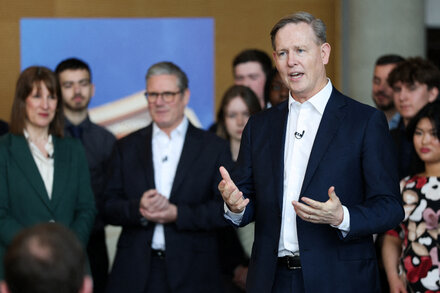Global leaders convened recently at the Climate Forward event, a pivotal gathering that saw heads of state, policymakers, and environmental experts deliberate on the complex intersections of geopolitics and the accelerating climate crisis. Discussions frequently revolved around three dominant themes: the potential impact of a shifting political landscape in the United States, particularly concerning former President Donald Trump; the evolving and multifaceted role of China in global climate efforts; and the overarching urgency of climate change itself.
The specter of a potential return of Donald Trump to the U.S. presidency was a recurrent point of discussion, prompting varied reactions and strategic considerations among international delegates. Many expressed apprehension regarding the implications for established climate agreements and multilateral cooperation.
“The stability of global climate commitments hinges significantly on the consistent engagement of all major economies,” one European diplomat observed during a panel discussion. “Any perceived withdrawal or significant policy shift from a country as influential as the United States would undoubtedly create ripples of uncertainty across our collective efforts.”
Leaders reflected on the previous Trump administration’s decision to withdraw the U.S. from the Paris Agreement and the subsequent efforts to rejoin and re-establish climate leadership. The possibility of such actions being revisited prompted calls for greater resilience in international climate frameworks, urging nations to deepen their individual and collective commitments irrespective of U.S. political tides.
China’s Pivotal and Complex Role
China’s position in the global climate change narrative emerged as another critical discussion point. Recognized both as the world’s largest emitter of greenhouse gases and a leading investor in renewable energy technologies, its dual role presents a complex challenge and opportunity.
Delegates debated the effectiveness of China’s ambitious domestic climate targets and its significant contributions to global renewable energy capacity, alongside concerns about its continued reliance on coal and its Belt and Road Initiative’s environmental footprint in developing nations. The U.S.-China relationship, often characterized by geopolitical tension, was acknowledged as a crucial axis for climate progress.
“China’s trajectory is undeniable in shaping the future of global climate action,” an Asian leader emphasized, highlighting the need for both engagement and accountability. “Its internal policies and international partnerships will determine a substantial portion of our collective success or failure in meeting the 1.5-degree target.”
There was a consensus that despite geopolitical rivalries, cooperation with China on climate issues remains indispensable, particularly in areas like clean energy innovation, carbon capture, and nature-based solutions.
The Unyielding Urgency of Climate Change
Underpinning all discussions was the stark reality of accelerating climate change. Scientists and policymakers reiterated the mounting evidence of extreme weather events, rising sea levels, and biodiversity loss, underscoring the imperative for immediate and scaled-up action.
The event served as a platform for leaders to reaffirm their commitments to the Paris Agreement and to push for more ambitious Nationally Determined Contributions (NDCs). Financing climate adaptation and mitigation in developing countries, technological transfer, and ensuring a just transition for communities reliant on fossil fuels were central to many interventions.
While the political landscape and major power dynamics present significant challenges, a shared sense of urgency permeated the conference halls. The consensus was clear: despite the complexities introduced by national political shifts or the intricate roles of major players like China, the scientific imperative for decisive climate action remains non-negotiable and requires a unified global response.
Source: Read the original article here.





